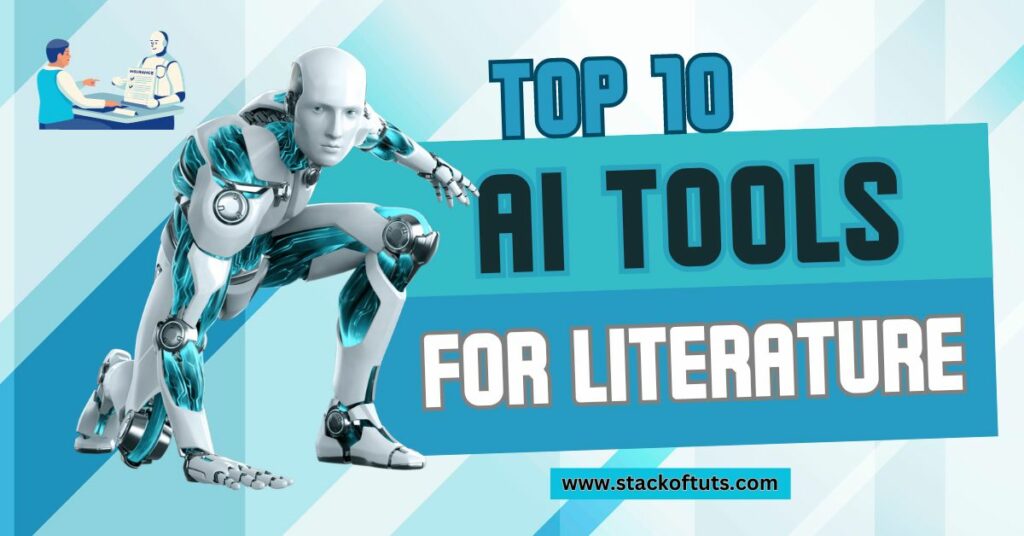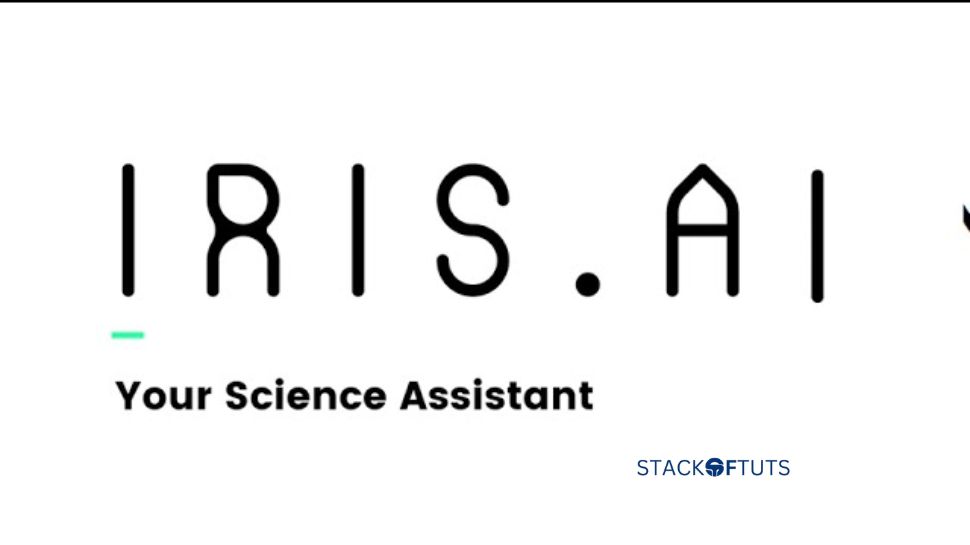
In today’s digitized world, the role of artificial intelligence (AI) in enhancing various fields can’t be overlooked, and literature is no exception. Writers, researchers, and professionals alike now have a plethora of tools at their fingertips. From aiding in research to refining the writing process, AI-driven solutions are making strides in revolutionizing how literature is approached. This article sheds light on the top 10 AI-powered tools for literature that are significantly transforming the literary landscape.
For a complete guide also read about Artificial intelligence used in Education dive into this link for exclusive insights and captivating discoveries!
What is AI?
Artificial intelligence, commonly referred to as AI, is a branch of computer science that focuses on the creation of machines that can think, learn, and make decisions similarly to humans. This means that AI systems can perform tasks that typically require human intelligence, such as understanding language, recognizing patterns, and concluding.
What are AI-powered tools for literature?
AI-powered tools for literature are digital solutions that utilize machine learning and AI algorithms to assist users in various literary tasks. From generating content to parsing dense academic papers, these tools are designed to make the process more efficient and accurate.
Why are AI-powered tools for literature important?
With the vast amount of information available today, sifting through literary content can be overwhelming. AI-powered tools help streamline this process, offering precision, improving productivity, and allowing for in-depth analysis in a fraction of the time. Whether it’s drafting, editing, or researching, AI tools ensure that the literary work is of the highest quality.
Top 10 AI-powered tools for literature
- Research Rabbit
- Scholarly
- Semantic Scholar
- Iris.ai
- Scite
- Trinka
- Elicit
- QuillBot
- Grammarly
- Jasper.ai
1. Research Rabbit

Think of Research Rabbit as a digital detective. For all writers and researchers who find it challenging to sort through vast amounts of data, this tool is a lifesaver. It acts like a magnifying glass, zooming into the sea of information to pick out only the most relevant bits. So, if you’re working on an article, essay, or any piece of writing, Research Rabbit ensures you have the best information to support your work.
2. Scholarcy

Ever felt overwhelmed by a long, dense research paper? Enter Scholarcy. It acts like a translator for academic works, converting challenging papers into easy-to-digest summaries. By spotlighting the main ideas, researchers can quickly understand the essence without wading through pages of complex jargon.
3. Semantic Scholar

Imagine having a personal librarian who can sort through shelves of books and articles in seconds to handpick the most relevant ones for you. That’s Semantic Scholar. It filters out unnecessary papers and presents you with up-to-date research tailored to your interests, ensuring you’re always on top of the latest knowledge in your field.
4. Iris.ai

Iris.ai is like a tour guide for your research journey. Instead of feeling lost in a forest of papers, this tool helps you see the bigger picture. It provides a roadmap of relevant papers and shows how they’re connected. This way, you can navigate through your research with confidence, knowing you’re on the right path.
5. Scite

Citations are crucial in research, but they can be tricky. That’s where Scite comes into play. It doesn’t just show who cited a paper; it also explains the context—whether the citation supports, mentions, or even contradicts the original paper. Think of it as a conversation tracker for academic discussions.
6. Trinka

For everyone who’s ever fretted over grammar mistakes or clumsy sentences in their work, Trinka is your trusty editor. Tailored for academic and technical writings, it meticulously scans your content, polishing it to shine its brightest. It’s like having an expert editor review your work without waiting!
7. Elicit

Writing can sometimes feel like speaking into a void with no response. Elicit changes that. It acts as a friendly critic, offering constructive feedback to make your writing clearer and more engaging. Whether you’re unsure about your tone, style, or clarity, Elicit guides you to improve, ensuring your readers enjoy every word.
8. QuillBot

Rewriting sentences to make them sound fresh can be tiresome. With QuillBot, it’s a breeze. Imagine having a friend who can quickly offer different ways to phrase your sentences, keeping the meaning intact but adding a fresh twist. That’s QuillBot for you, making your content lively and varied.
9. Grammarly

Most writers are familiar with that nagging doubt: “Did I make a grammar mistake? Is my style okay?” Grammarly is like a reassuring pat on the back. It’s a vigilant guardian, spotting typos, suggesting better phrasing, and even ensuring your work isn’t accidentally copied from somewhere. It’s a must-have for anyone who writes.
10. Jasper.ai

How do you use AI-powered tools to rank literature?
- Pick the perfect tool for you.
Today, we’re spoilt for choice with numerous AI tools tailored for literary purposes. These tools differ in features and functions. If you’re deep into research, select a tool that effortlessly sives through journals and articles for you. On the flip side, if writing is your forte, go for tools that elevate your style and provide innovative textual formats.
- Crafting top-notch content using AI
Using AI doesn’t mean you’ll always get perfect content. These tools, advanced as they are, rely on the data they’re trained on. It’s crucial to opt for a tool fed with quality data. Once you’ve got your ideal tool, feed it a topic or a set of keywords. As it churns out content, make sure to give it a human touch by reviewing and refining it.
- Make your content search-friendly.
Your awesome content deserves to be seen. This means making sure it pops up on search engines when someone looks up relevant terms. Use tools like Google Keyword Planner or similar platforms to sprinkle your content with high-impact keywords, ensuring more eyes land on your work.
- Spread the word on social media and beyond.
With your content primed for search engines, it’s time to shout it from the virtual rooftops. Share your work across your social channels, engage in topic-related communities, and use appropriate hashtags to amplify reach. And if you’re feeling particularly ambitious, delve into paid promotions for that extra visibility boost.
FAQs
AI tools provide accuracy, and efficiency, and streamline the research and writing process, saving writers considerable time and effort.
While AI tools offer immense benefits, human oversight is crucial. They are reliable but should be used in conjunction with human judgment.
No, they aid and enhance the writing process, but the creativity and expertise of a human writer are irreplaceable.
They filter, summarize, and highlight relevant information, making the research process more efficient and comprehensive.
Conclusion
The integration of AI in the literature domain is nothing short of revolutionary. From enhancing the quality of content to simplifying research, the top 10 AI-powered tools for literature have made significant strides in making the literary journey smoother and more efficient. As technology continues to evolve, so will the tools, ensuring that literature remains a dynamic and ever-evolving field. It’s an exciting era for literature enthusiasts, with AI being the catalyst for unprecedented growth and transformation.
Thanks!





